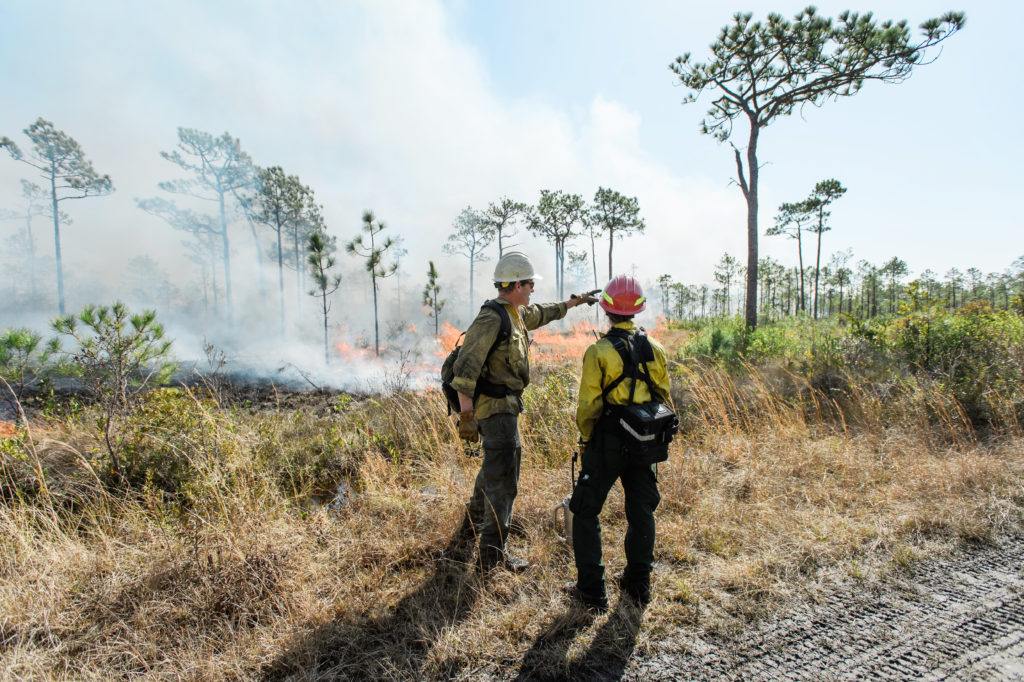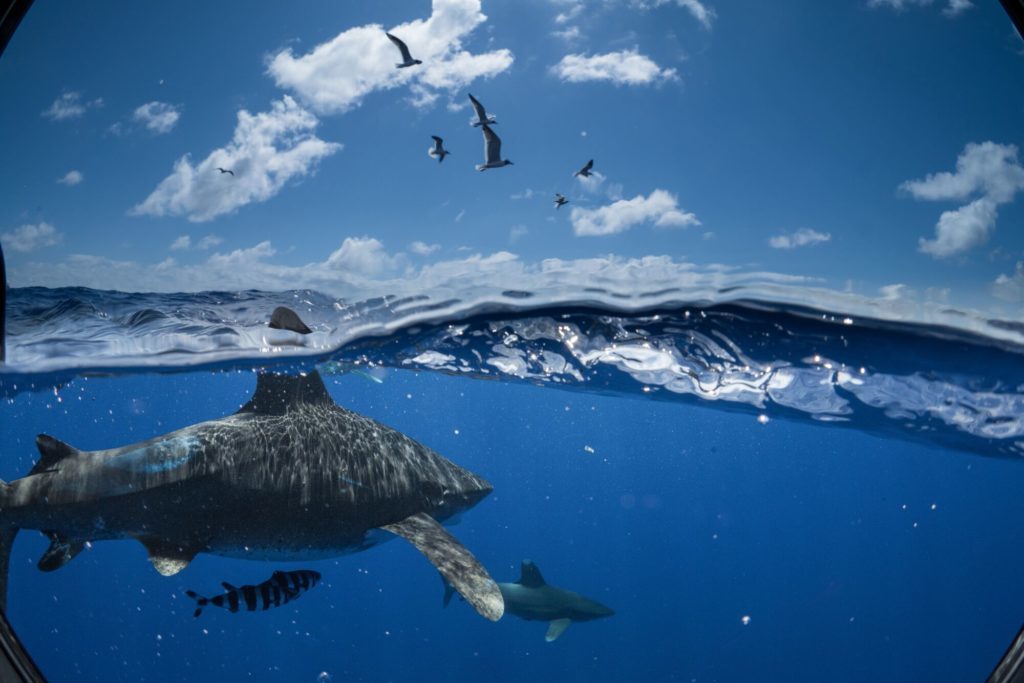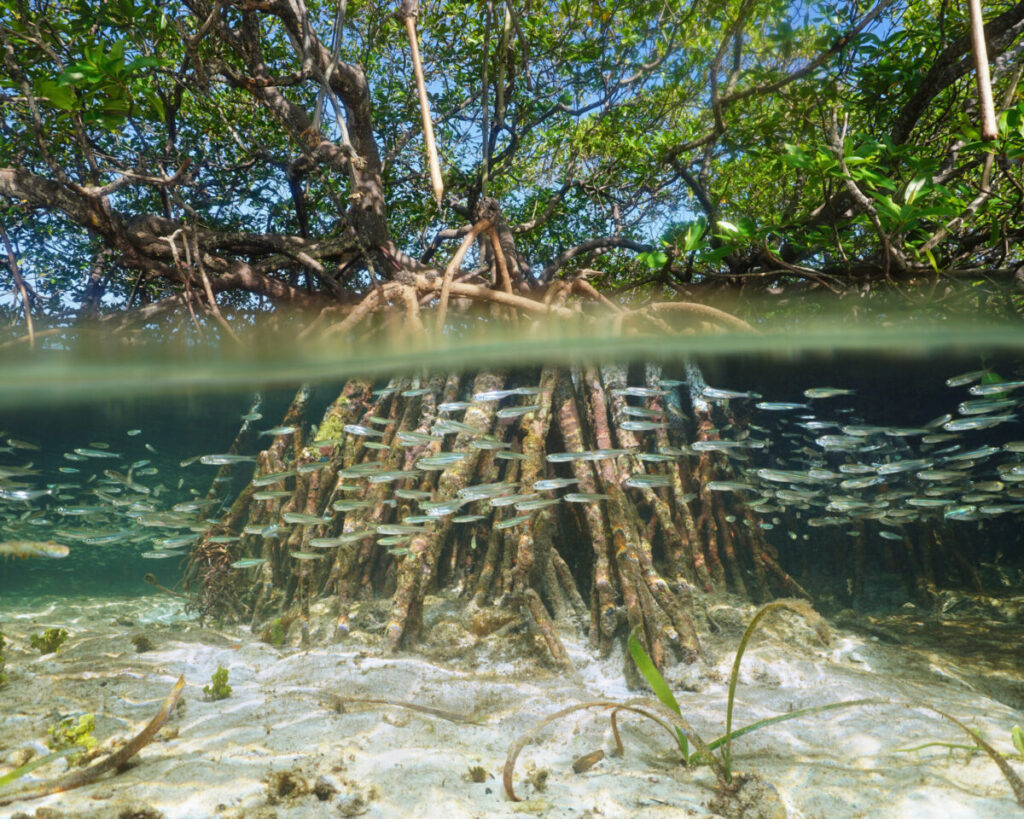
Impact
Driving Tangible Results for Conservation
The Moore Charitable Foundation is committed to preserving and protecting the environment and to producing real and lasting conservation outcomes internationally, nationally, and in local communities. We collaborate with community groups, non-profits, and funders to drive land, water, and marine conservation to preserve the natural world for generations to come.
From education initiatives that teach science and stewardship to teachers, children, and their families in Long Island, Southern Colorado, or Panama, to major litigation campaigns to stop polluting and destructive industrial developments, Louis Bacon, The Moore Charitable Foundation, and partners are determined to facilitate, fight for, and inspire great progress in strategic land and water conservation issues.

Revitalizing forests and keeping communities safe with prescribed fire
The Moore Charitable Foundation promotes prescribed burning to restore forests, maintain clean water and reduce wildfire risk. This centuries-old practice involves deliberately setting carefully managed fires under strict professional supervision. By removing dense understory vegetation that fuels large wildfires, it allows indigenous plants and wildlife to thrive, restoring natural, diverse ecosystems.
Learn More
Protecting vital shark populations
The Moore Charitable Foundation is dedicated to the protection of sharks and the maintenance of a healthy shark population around the globe. Sharks serve an integral role in marine ecosystems and impact local economies. Whether off the coasts or in international waters, sharks help maintain the balance of species in the ocean.
Learn More
Why mangroves matter
The Moore Charitable Foundation works toward the protection and maintenance of mangrove forests, some of the most ecologically sensitive and important habitats in the world. Mangroves are essential to coastal ecosystems, protecting homes and infrastructure from tropical storms, supporting robust biodiversity above and below the water, mitigating climate change by sequestering massive amounts of carbon dioxide, and serving as nursery grounds for essential fishery species.
Learn MoreImpact Stories
Driving Conservation Measures for Humpback Whales in Panama
With Islas Secas Foundation support, Panacetacea has conducted annual humpback whale research expeditions in the Gulf of Chiriquí that has identified two Southeastern Pacific Distinct Population Segments — a smaller population that migrates from feeding areas in the north, seen between December-April; and between July-October, a much larger population from feeding areas off Antarctica and Chile.
Reducing Nitrogen Pollution in Long Island
Outdated septic is a primary source of water pollution in Long Island. Despite rebate programs, the steep upfront installation cost of better systems drives homeowners away. Enter Peconic Baykeeper’s pilot Septic Improvement Program, which is spearheading nitrogen reduction in the East End.
Building Opposition to Ocean Drilling
Oceana has organized powerful grassroots efforts and stimulated bi-partisan push back to offshore drilling and seismic blasting at the expense of coastal economies and environments. They also are pursuing legal action with partners.
Grain for Cranes
Colorado Open Lands, with the US Fish & Wildlife Service and Miller Coors Brewing, launched the Grain for Cranes program to support local agriculture while assuring sufficient habitat and food resources for the migrating Sandhill Crane population.
Farms of the Future
Through its Farms of the Future initiative, Peconic Land Trust is protecting farmland threatened by development and increasing the number of working acres through conservation tools that address farmland accessibility, affordability, and sustainability.
Rio Grande Water Fund
The Nature Conservancy New Mexico established the visionary Rio Grande Water Fund as a public-private partnership to address overgrown forested watersheds in northern New Mexico and resulting water scarcity downstream.
Restoring Critical Nesting Habitat
Audubon’s North Carolina Coastal Islands Sanctuary Program protects and restores nesting habitats for water birds in over 20 locations along the coast of North Carolina, focusing on key sites and habitats that shore birds require for nesting.
On the Front Lines of the Cape Fear
Cape Fear River Watch monitors activities that impact the watershed, including heavy industry and concentrated animal feeding operations, and partners on environmental improvements, advocating for important policy change, and engaging the community to become stewards of the river.
Encouraging Local Environmental Stewardship Through Hands-On Education
Implemented by Panama Audubon Society, the Aulas Verdes program provides environmental programming to schools in underserved and vulnerable communities across Panama.
New Stewards & Fire Adapted Communities
Forest Stewards Guild works with New Mexico youth from disadvantaged communities to teach forest management skills, protecting streams, repairing trails, removing weeds, marking timber, preparing prescribed burns, and enhancing habitat.
Community Conservation Leadership
The Taos Land Trust, in step with an entire community, is revitalizing a 20-acre section of the Rio Fernando River, bringing an acequia back to life, and restoring the once-productive agricultural lands of this property.
Restoring the Longleaf Pine Ecosystem
The Longleaf Stewardship Fund is a landmark public-private partnership focused on expanding, enhancing, and accelerating longleaf pine ecosystem restoration across its historical range. Our North Carolina affiliate is a proud partner.
Developing Emergency Mountain Medicine Training
The UNM International Mountain Medicine Center was created in Taos to conduct world-class education, research, and leadership training in mountain medicine and rescue.
Collaborating for Global Ocean Health
A global funder's collaborative committed to protecting the world's oceans, Oceans 5 focuses on protecting large ecologically and economically significant ocean areas, securing new policies to stop overfishing and combat IUU fishing and to expand and strengthen strategic marine philanthropy.